Esta semana vamos a hablar y mucho de un autor que nos gusta especialmente en el blog. En colaboración con Marcheto, de Cuentos para Algernon, aquí os traemos la entrevista que nos ha concedico K.J. Parker, alter ego de Tom Holt. Espero que la disfrutéis y que os ayuda a conocer a un interesantísimo escritor. Al final de la página podréis ver la entrevista en inglés.
¿Por qué escogiste usar pseudónimo y por qué K.J. Parker en particular? ¿Cuál fue la razón de desvelar el secreto tan tantos años?
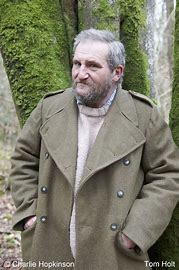
Cuando decidí escribir los libros como K.J. Parker, ya llevaba escribiendo y publicando novelas 16 años, bajo mi propio nombre. Estos libros eran muy distintos de lo que escribo como Parker; son comedias ligeras y frívolas, en ocasiones descritas como “absurdas” y “alocadas”, dos adjetivos que odio particularmente, pero dejémoslo. Temía que si publicaba mi material nuevo y menos frívolo bajo mi propio nombre, pasarían dos cosas: a) gente que comprensiblemente se mantendría alejado de algo definido como “absurdo” y “alocado” asumiendo que sería más de lo mismo o b) mis lectores habituales comprarían los nuevos libros esperando cosas “absurdas” y “alocadas” y se llevarían un chasco. Así nació K.J. Parker.
K J eran las iniciales de un buen amigo mío que me enseñó todo lo que sé de ingeniería: era un virtuoso en su terreno y esperaba que K.J. Parker lo fuera también en lo suyo. Parker, porque Parker es un fabricante de plumas de alta calidad y otra forma de decir pseudónimo es “pen name”.
Todo esto salió a la luz porque mis editores querían algún gancho publicitario para la publicación serializada de Two of Swords. Al final resultó que no le importaba a nadie, ni mi identidad secreta y ni el propio libro. ¿Se podría culpar a alguien?
¿Cómo fue tu experiencia de publicación en España? ¿Hay alguna posibilidad de volverte a leer en nuestro idioma?
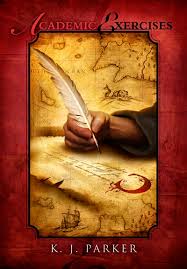
A veces me molesta, aunque solo un poco, que haya más gente que ha leído a K.J. Parker traducido que en inglés. Solo un poco, porque me encanta que cualquiera me lea. Pero también un poco porque la cualidad de la que estoy más orgulloso en el trabajo de K.J. Parker es el estilo (la elección de palabras, el uso de la gramática y la sintaxis, la voz, las cadencias, ese tipo de cosas). Y todo eso se pierde cuando no son mis palabras las que el lector ve. Probablemente mis traductores producen algo igual de bueno, puede que incluso mejor, pero no son mis palabras, esas que he escogido cuidadosamente y sobre las que he sufrido. Los personajes, las tramas, las situaciones se traducen bien pero, ¿las propias palabras? No lo sé. Lo que me hace preguntarme, ¿qué lo que le gusta a mis lectores de mi obra traducida?
Hay una novela corta, una de mis favoritas, que nunca se ha publicado en inglés, solo en chino. Probablemente sea mejor en chino que en inglés.
Algunas de tus obras se pueden enmarcar en mundo del “Sol Invencible”. ¿Tienes una cronología de este universo para seguir contando historias relacionadas o es simplemente que te gusta el escenario?
Esta es complicada. Para responder de forma simple: muchos de mis libros y relatos están situados en el mismo mundo, pero a lo largo de un tiempo muy dilatado, del orden de unos dos mi años (más o menos el mismo tiempo que separa la fundaciónde Roma de la caída de Constantinopla). Como la tecnología y la vida material de la gente normal en K. J. Parkerland cambia tanto como cambiaba en la vida diaria de los romanos, es decir, muy poco, hay poca información en los propios libros y relatos para situar el periodo histórico en el que transcurren.
La verdad es que me gusta usar varias cosas, como imperios divididos en dos mitades o ciudades-estado marítimas, o una raza de arqueros a caballo nómadas, o un religión monoteísta como estándares adecuados para mis libros, pero soy demasiado descuidado como para mantener estas referencias consistentes. Escribir un historia alternativa coherente no es lo que estoy tratando de hacer, así que no importa. La única excepción es mi personaje recurrente favorito, Saloninus. Es tan resbaladizo como una anguila, le encanta aparecer en una historia yluego en un relato situado doscientos años después, en un momento en que lo razonable sería pensar que ha muerto.
¿Cuál es tu longitud favorita para contar una historia (novela, novela corta, relato…)?
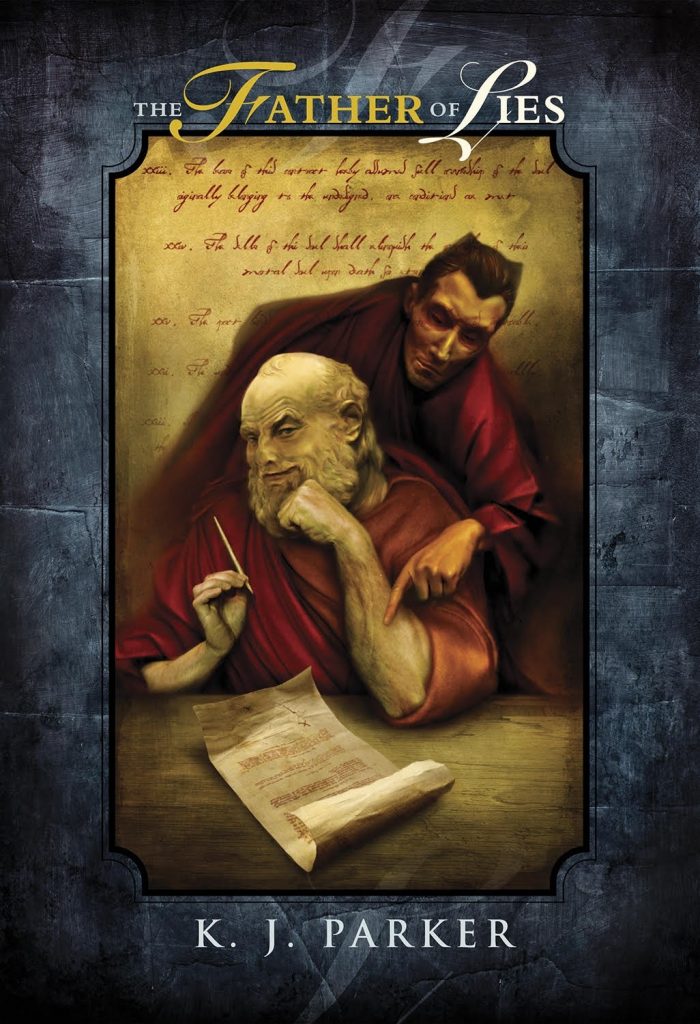
Depende de la propia historia. Algunas necesitan mucho espacio y a otras les sienta mejor ser concisas y dulces. En términos meramente económicos, me gustan mucho las novelas cortas porque se pagan mejor que las novelas o los relatos. Pero no me gusta restringirme a un solo formato ya sea corto o largo. Me gusta hacer cosas distintas en los tres formatos que uso. Por ejemplo, prácticamente no hay nada mágico ni sobrenatural en mis novelas, pero los relatos cortos son completamente mágicos y supernaturales. En las novelas cortas hay un poco de ambos.
Algunos de tus libros muestran un trasfondo muy detallado en temas muy diversos: tácticas de sitio en Sixteen Ways to Defend a Walled City, metalurgía e ingeniería antigua en la trilogía del ingeniero, diversos tipo de hojas y técnicas de esgrima en Sharps… ¿Haces mucha investigación en estos temas o ya eran de tu interés con anterioridad a decidirte a escribir sobre ellos?
Un poco de ambos. Empiezo con algo que me interese, veo su potencial como material para escribir y comienzo a investigar para el libro. No escribo sobre todo lo que me interesa, pero me interesa todo aquello sobre lo que escribo.
En ocasiones el libro llega antes; aprendí sobre la creación de armaduras para ser capaz de escribir sobre ello y ahora es uno de mis pasatiempos favoritos. Del mismo modo, hay un par de cosas sobre las que he escrito que no he hecho, sabía que tenía que haber una caza del jabalí en la trilogía del ingeniero, pero soy demasiado mayor para hacerlo a la forma tradicional, con perros y lanzas, así que me fie del testimonio de dos buenos amigos míos, ambos experimentados e intrépidos cazadores, que fueron capaces de relatarme con todo detalle cómo se hace y qué se siente. La mayoría de las veces, sin embargo, hago mi propia investigación.
¿Te gustan los audiolibros? ¿Crees que tus novelas se adaptan a este formato?
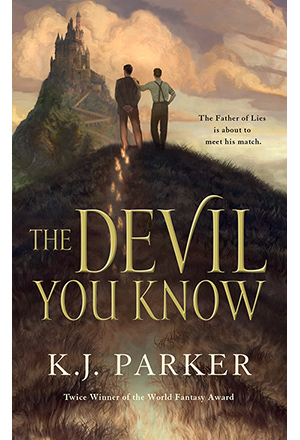
Me encantan. Es mi forma favorita de experimentar mi propio trabajo.
Parece que te gusta mucho la figura del narrador no confiable. ¿Cómo desarrollas este personaje, sabiendo que tienes que ocultarle información al lector pero seguir interesándole?
La gente miente, es una parte fundamental de la naturaleza humana. La clase de gente sobre la que me gusta escribir son propensos a mentir a otra gente, al lector, a sí mismos. Juegan con la verdad incluso cuando no están directamente mintiendo, porque jugar con la verdad es una buenísima definición de la escritura de novela y relatos. Sobre todo, me gusta escribir sobre personas intersantes y complicadas, que se encuentran con problemas que ellos mismos han provocado.
Muchas gracias a Tom Holt por ser tan amable al contestar nuestras preguntas. Espero que os haya interesado la entrevista. A continuación, la podéis leer en inglés.
K.J. Parker interview
Why did you choose to use a pseudonym and why K.J. Parker in particular? Why come out after all those years?
When I decided I wanted to write the K J Parker books, I’d already been writing novels for about 16 years, and publishing them (under my own name, naturally). Those books were very different from the KJP stuff ; they were light-hearted, frivolous comedies – described in reviews as ‘wacky’ and ‘zany’ (two adjectives I’ve always particularly hated, but never mind). I was afraid that, if I published my new, rather less frivolous stuff under my own name, (a) people who quite understandably steer clear of anything branded ‘wacky’ and ‘zany’ would assume it was just more of the same tripe, from an established tripe-peddler (b) my existing readers would buy the new books expecting wackiness and zaniness and would, understandably, be disappointed. So K J Parker was born.
K J were the initials of a good friend of mine who taught me everything I know about engineering; he was a supreme craftsman in his field, and I hoped KJP would turn out to be similarly craftsmanlike in his. Parker, because Parker is (in the UK) a manufacturer of high quality pens, and another term for pseudonym is ‘pen name’.
I came out because my publishers wanted some sort of publicity hook for the publication of the serialised version of Two of Swords. In the event, it turned out that nobody was particularly interested, either in my true identity or the Two of Swords. And who can blame them?
How was your experience of being published in Spain? Is there any chance that we will see again your work translated into Spanish?
It sometimes irks me, ever so slightly, that more people have read K J Parker in translation than in English. Only ever so slightly, because I’m delighted and grateful that anyone reads my stuff at all. But ever so slightly nevertheless, because the thing about the K J Parker stuff I’m personally the most proud of is the style – choice of words, use of grammar and syntax, the voice, the cadences, that sort of thing. All that goes by the board, of course, when it’s not actually my words that the reader gets to see. Probably the people who translate my stuff produce something that’s just as good, and quite possibly better; but it’s not my words, the words I’ve carefully chosen and agonised over. Characters, plots, situations &c translate just fine, but the words themselves? I honestly don’t know. Which makes me wonder what it is about my stuff, in translation, that people like?
There’s one novella – one of my favourites – that’s never been published in English, only in Chinese. It’s probably better in Chinese than English.
Some of your works can be related to the “Invincible Sun” world. Do you have a chronology of this world to keep telling us stories about it or it is just that you like the setting?
This is complicated. To try and keep it simple; a lot of my books and stories are set in the same world, but spaced out over a very long time, something in the order of 2,000 years (roughly the same timespan that separates the foundation of Rome from the fall of Constantinople). Because technology and the material life of ordinary people in K J Parkerland changes about as much as everyday life did under the Romans – ie very little – there’s little in the books and stories themselves to show what time period they’re set in.
The real truth is that I like to use various things, such as an empire divided into two halves, or a seagoing mercantile city-state, or a race of nomadic horse-archers, or a monotheistic religion, as standard fixtures and fittings in my books, but I’m too careless to keep the references to them consistent. Writing a coherent consecutive alternative history isn’t what I’m aiming to do, so it doesn’t really matter. The only exception to that is my favourite recurring character, Saloninus; who, being slippery as an eel, takes great pleasure in appearing in one story and then in another one set two hundred years later, by which time he really ought to be safely dead
What is your favorite lenght to tell a story (novella, novelette, novel)? What is your favorite short story?
It all depends on the story. Some stories need a lot of space and scope, others need to be kept short and sweet. In real-life terms, I’m rather fond of novellas, because (in terms of dollars per hour) they pay better than either novels or short stories. But I wouldn’t want to be restricted to any one form, short, medium or long. I like to be able to do different things in the three different forms I use. For instance, there is practically no magic or supernatural stuff in the novels; the short stories are almost entirely magic and the supernatural; the novellas are a mix of both.
In some of your books show a very detailed background in the most various topics: siege tactics on Sixteen Ways to Defend a Walled City, metalwork and antique engineering in the Engineering Trilogy, various types of blades and fencing techniques in Sharps and so on. Do you do a lot of research for those or are these topics in which you have a keen interest and decide to write on them?
A bit of both. I start off with an interest in something, realise its potential for being written about, and then get into it further for the purposes of the book. I don’t write about everything that interests me, but I’m interested in everything I write about.
Occasionally the book comes first; I learnt about making armour so as to be able to write about it, and now it’s a favourite hobby of mine. Likewise, there are one or two things I’ve written about that I haven’t actually done myself; I knew I had to have a wild boar hunt in the Engineer trilogy, but I’m far too old and timid to go hunting wild boar the old-fashioned way, with dogs and spears, so I relied on the testimony of two good friends of mine, both of them experienced and intrepid hunters, who were able to give me full and reliable accounts of how it’s done and what it’s like. Mostly, though, I do all my own stunts.
You seem to like a lot the unreliable narrator figure. How do you develop this character, knowing that you have to conceal information from the reader and at the same time keep interesting them?
People lie; it’s a fundamental part of human nature. The kind of people I like to write about are very likely to tell lies – to other people, to the reader, to themselves. They play games with the truth even when they aren’t flat-out lying, and I like that, because playing games with the truth is as good a definition of writing novels and stories as you’re likely to get. Above all, I like writing about interesting, complicated people who find themselves in trouble of their own making.
Do you like audiobooks? Do you think is a format suitable for your novels?
Absolutely. It’s my favourite way of experiencing my own work.
Mañana seguiremos con la semana dedicada a K.J. Parker con una reseña de un nuevo colaborador del blog.
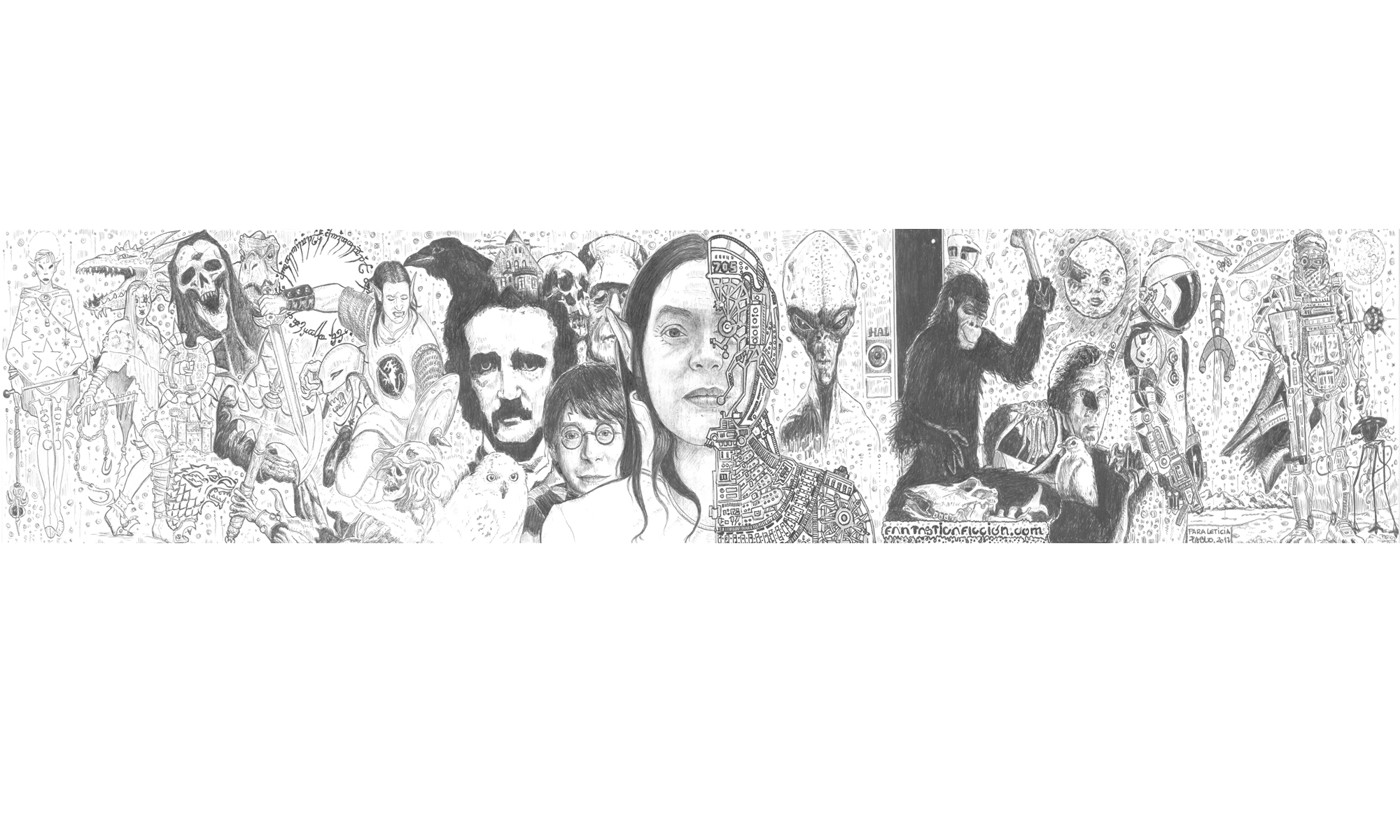
Muchas gracias por esta interesante entrevista; no concede muchas últimamente.
Un pequeño comentario: la última pregunta (la del narrador) falta en inglés; sólo aparece en castellano.
Esta ordenada de otra forma pero sí que aparece. Gracias por el comentario.